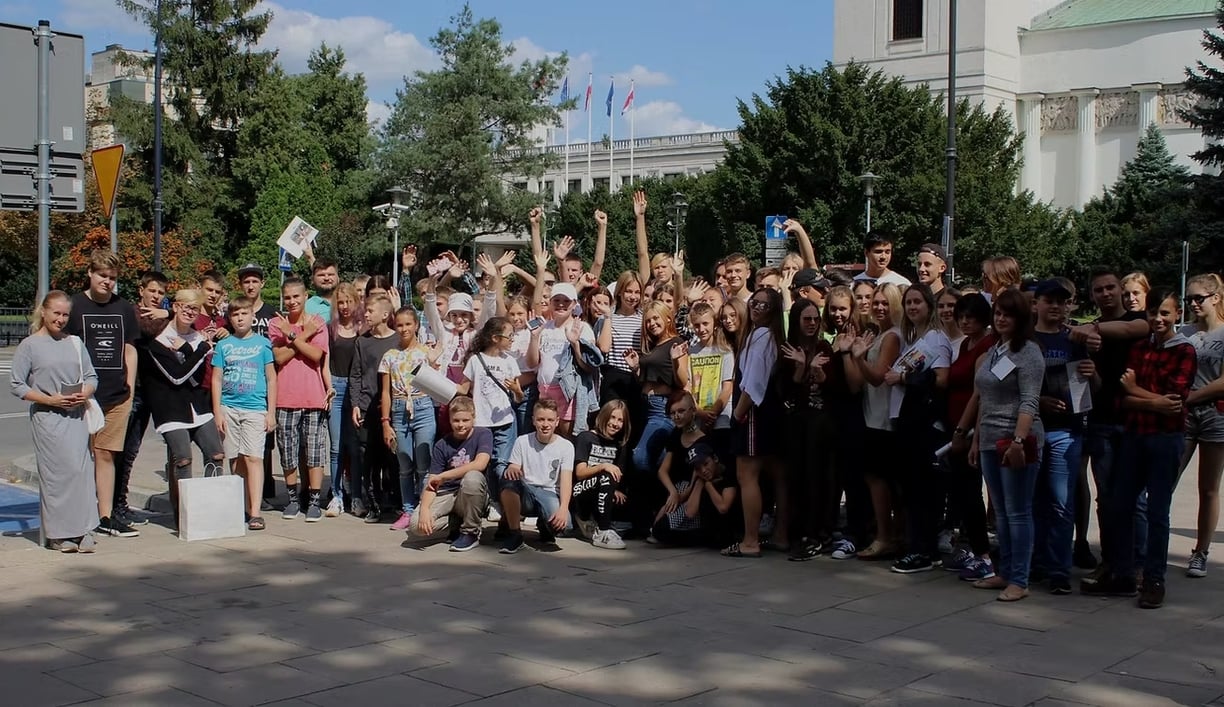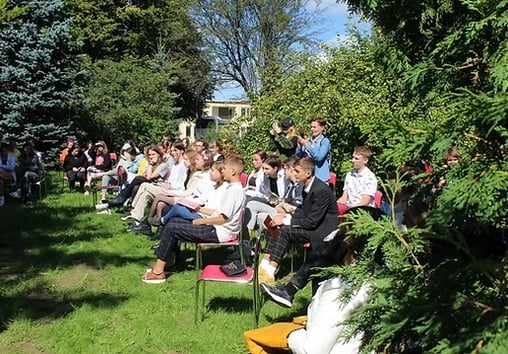

ZPK Foundation
FREE
STUDY IN POLAND
for students in grades 6-11


The Polish Association Foundation in Kijowa is the first and only Polish study program in Ukraine for children from grade 6. Educational and cultural international projects, consulting on university admission or career choice, learning Polish and meeting new people.
Our educational program began in 2014, when a group of 16 students came to study at technical schools in Puławy. We began to create high-quality and safe conditions for their comfortable stay in Poland.
Every September, more and more students joined us. In 2017, we already celebrated the first Studniówki (graduations) of our students, and in 2019, 148 students from grades 6 to 12 started the school year with us. In 2020, during the pandemic, we organized evacuations, supported distance learning, and our students came to Poland for exams.
Since the start of the full-scale invasion, we have focused on long-term support for children with migration experiences — providing not only education, but also stability, care, guidance, and development in a new environment.
Our team of supervisors has also been improving - they are qualified teachers with experience of round-the-clock cooperation with students and their parents, with knowledge of the specifics of the Polish administrative system and working with children with migration experience. Our pride is our graduates who have gone from students to mentors and are working with us today. Their experience and personal motivation help create an atmosphere of trust and mutual understanding in groups.
Studying with us is:
Ward
A necessary component of a teenager's comfortable stay abroad without parents, especially in the first year. After all, children cannot immediately go home if necessary, and the mother is not always able to fully assess the situation remotely. Our curators help around the clock in solving everyday issues.
Education
An important part of full personal growth. We motivate students to: form their own value system; support Ukrainian and Polish traditions; improve soft skills, including communication skills, interpersonal interaction, socialization, empathy; rationally use their time, opportunities, and resources.
Development
Education is not only about school, because children spend more time outside the walls of an educational institution. We offer students developmental meetings, trainings, webinars and trips; in cooperation with universities, we organize career guidance classes; we encourage children to self-organize and implement their own projects and develop their abilities; visit and organize cultural and artistic events.
POLISH EDUCATION SYSTEM AND IMPORTANT CONCEPTS:
Primary school - starts at the age of 7 and lasts for 8 grades. The educational program is the same for all schools at this level. The education ends with a mandatory national exam (mathematics, Polish, English), the results of which affect the possibility of entering a lyceum or technical school. Graduates enter the exam results and annual grades into the electronic recruitment system. There they choose 3 educational institutions in descending order from the most desired. At the beginning of July, the system, based on the student's performance and the competition, automatically assigns students to one of the selected educational institutions. This can be:
Lyceum - 4 years of study (generally, high school lasts 12 years). In a profile class - the student does not receive a specialty, but in addition to the compulsory program, he studies several selected subjects in depth (rozszerzenie). For example, "medical class" - in depth biolchem; "political science class" - in depth history and sociology.
or Technical school - 5 years of study. In addition to the general education program, students undergo theory and practice of the chosen specialty. After passing the qualifying exam (specialty exam), they receive a full secondary specialized education at the "technician" level. A graduate of a technical school can work in their specialty. You can continue your studies at a university only from the 1st year and if you passed the MATUR at a technical school
A curator is a teacher who lives with students in a dormitory during the academic year, helps with household, educational, and administrative issues; acts on behalf of the student's parents in Poland, participates in parent meetings and contacts with teachers; accompanies a group of students when crossing the border from/to Ukraine, and helps students and their parents cope with the psychological stress during adaptation.
MATURA - a final exam that high school students are required to take and technical school students have the right (but are not required) to take. 3 compulsory subjects (Polish, mathematics and a foreign language) + 2 subjects from in-depth study (rozszerzenie) of choice. Successfully passed (at least 30% each) three main subjects are the key to obtaining a Maturity Certificate (świadectwo dojrzałości) and opens the way to admission to a higher education institution (Universytet, Szkoła wyższa).
C1 certificate - a state certificate of proficiency in Polish at level C1 (one of the highest levels of the language) entitles foreigners to free higher education in state universities in Poland. It can be obtained by a foreigner who has reached the age of 18, provided that he successfully passes the exam of the State Commission for the Certification of Knowledge of the Polish Language as a Foreign Language. Graduates of Polish schools who have a high school diploma (i.e. have passed the matura) can obtain a B1 level certificate without an exam.
PESEL - 11-digit identification code of a person residing in Poland. It is used, in particular, for opening a bank account, registering in state institutions (including clinics). It is assigned to a foreigner upon registration.
Registration (meldunek) - a foreigner staying in Poland for more than 30 days is required to obtain a temporary residence permit at the address of residence. Just like PESEL, it is required for school enrollment.


